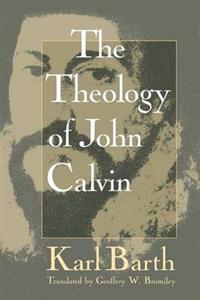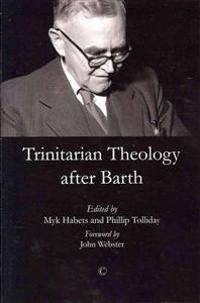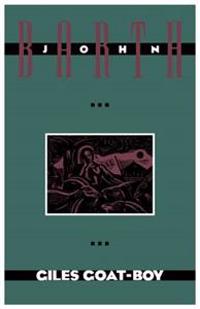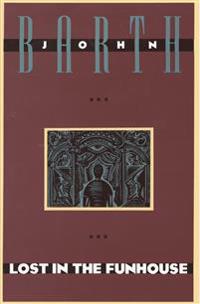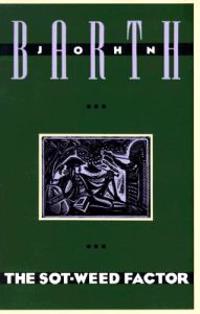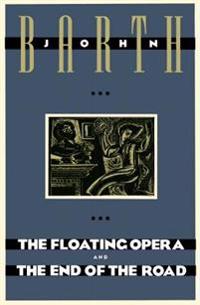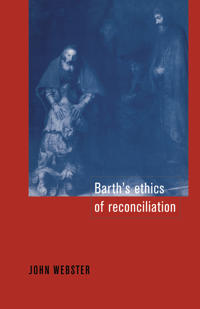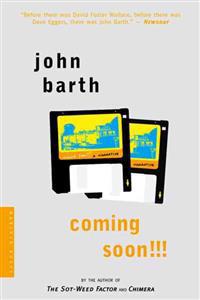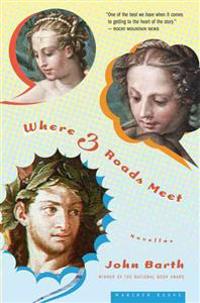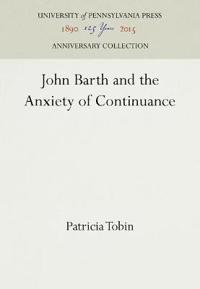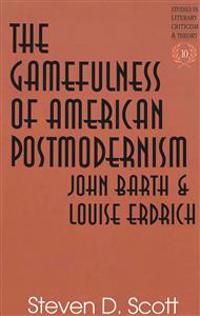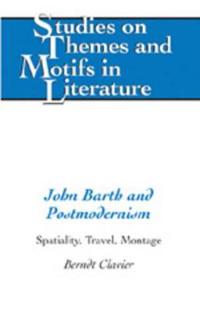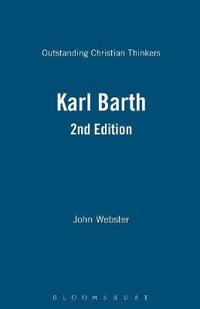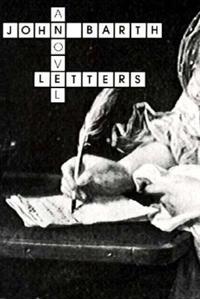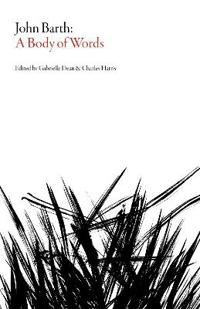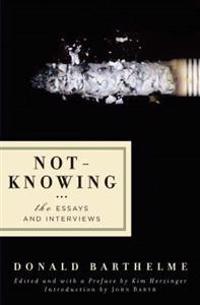The Theology of John Calvin (Pocket)
avKarl Barth, Geoffrey W. (TRN) Bromiley, Karl Barth
ISBN: 9780802806963 - UTGIVEN: 1995-10This historically significant volume collects Karl Barth's lectures on John Calvin, delivered at the University of Gottingen in 1922. The book opens with an illuminating sketch of medieval theology, an appreciation of Luther's breakthrough, and a comparative study of the roles of Zwingli and Calvin.[...]
Trinitarian Theology After Barth (Pocket)
avMyk (EDT) Habets, Phillip (EDT) Tolliday, John (FRW) Webster
ISBN: 9780227680322 - UTGIVEN: 2012-06Karl Barth was undoubtedly one of the most outstanding theological thinkers of the twentieth century. Referred to by some as the 'father' of the Church, his influence upon the doctrine of the Trinity continues to be a commanding presence. Barth understood that it is from Trinitarian teaching that Ch[...]
Giles Goat-Boy (Häftad)
avJohn Barth
ISBN: 9780385240864 - UTGIVEN: 198711In this outrageously farcical adventure, hero George Giles sets out to conquer the terrible Wescac computer system that threatens to destroy his community in this brilliant "fantasy of theology, sociology, and sex" (Time).[...]
Lost in the Funhouse (Pocket)
avJohn Barth
ISBN: 9780385240871 - UTGIVEN: 198804Barth's lively, highly original collection of short pieces is a major landmark of experimental fiction. Though many of the stories gathered here were published separately, there are several themes common to them all, giving them new meaning in the context of this collection.[...]
Soft Weed Factor (Häftad)
avProfessor John Barth
ISBN: 9780385240888 - UTGIVEN: 190001This is Barth's most distinguished masterpiece. This modern classic is a hilarious tribute to all the most insidious human vices, with a hero who is "one of the most diverting...to roam the world since Candide" (Time ).[...]
Floating Opera / the End of the Road (Häftad)
avJohn Barth
ISBN: 9780385240895 - UTGIVEN: 199810The Floating Opera and The End Of The Road are John Barth's first two novels. Their relationship to each other is evident not only in their ribald subject matter but in the eccentric characters and bitterly humorous tone of the narratives. Both concern strange, consuming love triangles and the des[...]
Arabian Nights, Volume II: More Marvels and Wonders of the Thousand and One Nights (Pocket)
avJack Zipes, John Barth
ISBN: 9780451531483 - UTGIVEN: 2010-02Volume two in a collection of tales representing distinctive genres- from fairy tales to erotica-revealing the customs and societies in the medieval Middle East, as told by the mythic Sheherazade.
[...]Barth's Ethics of Reconciliation (Pocket)
avJohn Webster
ISBN: 9780521044110 - UTGIVEN: 2007-11John Webster provides a major scholarly analysis of the final sections of the Church Dogmatics. He focuses on the theme of human agency in Barth's late ethics and doctrine of baptism, placing the discussion in the context of an interpretation of the Dogmatics as an intrinsically ethical dogmatics. T[...]
Coming Soon!!! (Pocket)
avJohn Barth
ISBN: 9780618257300 - UTGIVEN: 200210Two writers, a retiring novelist and an aspiring writer of hypertext, compete to create a novel of a floating opera and explore the cultural lines between print and electronic fiction, and modernism and postmoderism. Reprint.[...]
John Barth and the Anxiety of Continuance
ISBN: 9780812230932 - UTGIVEN: 1992-01During the sixties and seventies, the fictional "reinventions" of john Barth, along with his misread and influential essay 'The Literature of Exhaustion," established the comic novelist as a leading practitioner and theorist of what was then coming to be called postmodern literature. In more recent [...]
The Gamefulness of American Postmodernism: John Barth and Louise Erdrich
ISBN: 9780820438948 - UTGIVEN: 2000-09This book examines the twin problems of play and game in American literary postmodernism. There have been many studies of the function of play in postmodernism, but very few have discussed the role of game without conflating play and game. This study claims that play is an important consideration in[...]
John Barth And Postmodernism
ISBN: 9780820463858 - UTGIVEN: 2006-11John Barth's eminence as a postmodernist is indisputable. However, much of the criticism dealing with his work is prompted by his own theories of -exhaustion- and subsequent -replenishment, - leaving his writing relatively untouched by theories of postmodernism in general. This book changes that by [...]
Karl Barth (Häftad)
avJohn Webster
ISBN: 9780826474636 - UTGIVEN: 2004-05Karl Barth (1886-1968) has been called the most important Protestant theologian since Schleiermacher. A lifetime of work produced a huge and complex body of writings that emerged from both his theological teaching and from his engagement in church life. The publication of some of his work posthumous[...]
Piety and Responsibility: Patterns of Unity in Karl Rahner, Karl Barth, and Vedanta Desika (Inbunden)
avJohn N. Sheveland
ISBN: 9781409409052 - UTGIVEN: 2011-05-19Letters (Pocket)
avJohn Barth
ISBN: 9781564780614 - UTGIVEN: 199409A landmark of postmodern American fiction, Letters is (as the subtitle genially informs us) "an old time epistolary novel by seven fictitious drolls & dreamers each of which imagines himself factual." Seven characters (including the Author himself) exchange a novel's worth of letters during a 7-mont[...]
John Barth: A Body of Words (häftad)
ISBN: 9781564788696 - UTGIVEN: 2016-06For the past half-century, John Barth has been recognized as our quintessential postmodernist and praised as one of the best writers "we have ever had" (New York Times Book Review). In this unique collection, thirty-six writers and critics look back at Barth's career, providing a deeper understandin[...]
Not-Knowing: The Essays and Interviews (Häftad)
avDonald Barthelme, Kim Herzinger, John Barth
ISBN: 9781593761738 - UTGIVEN: 200801

